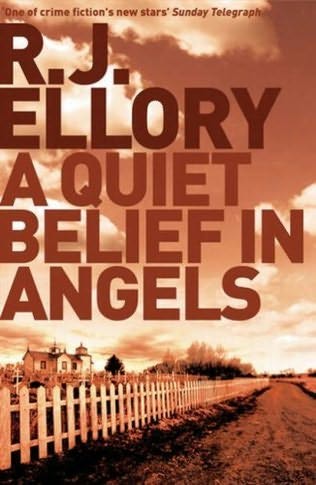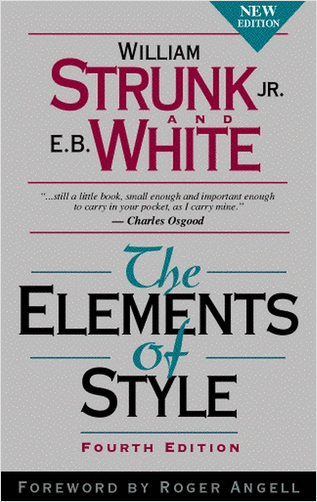The Three Rs - Rules of Riting Revisited
 David Antrobus Posted on
David Antrobus Posted on  Monday, February 20, 2012 at 2:41PM
Monday, February 20, 2012 at 2:41PM  Illustration: Andrzej KrauzeSo, after flirting with anarchy in my last Indies Unlimited blog post, I’m now going to continue to obsess about rules, just like that lady who didth protest too much.
Illustration: Andrzej KrauzeSo, after flirting with anarchy in my last Indies Unlimited blog post, I’m now going to continue to obsess about rules, just like that lady who didth protest too much.
In my defence, rules are kind of fascinating, even when we disagree with them. I mean, how was it decided, for example, that in the English city of Chester, you can only shoot a Welsh person with a bow and arrow inside the city walls after midnight? Not even sure which part of that rule I disagree with most, especially since it’s apparently okay to shoot a Scotsman with a bow and arrow in York at any time of day or night. Except Sundays. (Oh, that’s alright, then. And no, I promise I’m not making any of this up, you can check.)
But, back on track. My purposes here are to highlight a really cool link, in which the Guardian newspaper, following an excellent response by crime writer Elmore Leonard to a similar request, asked a bunch of accomplished writers to list up to ten “rules of writing” of their own. It really is an impressive list. Now, I could simply point you there and hope you go read them, but not only would this be a very short blog post, but the piece itself is very long, is in two parts, and honestly, even I am not that naive. So instead, I’ll grab a fairly random handful of these rules, and hold them up for inspection. As well as mockery. Okay, not mockery; some sporadic light teasing, perhaps. All done in a spirit of affection, of course.
1. Elmore Leonard: “if it sounds like writing, I rewrite it.”
Hey, Elmore, that sounds a bit like writing to me. What’s that? Uh. Just kidding.
2. Margaret Atwood: “Take a pencil to write with on aeroplanes. Pens leak. But if the pencil breaks, you can’t sharpen it on the plane, because you can’t take knives with you. Therefore: take two pencils.”
I now have an unrequited urge to ask the redoubtable Margaret Atwood if she’s heard of pencil sharpeners. Or mechanical pencils. Or, uh, iPads.
3. Geoff Dyer: “Have regrets. They are fuel. On the page they flare into desire.”
Uh-huh. Nodding my head vigorously if slightly stupidly here. Okay, not a good look. Moving on.
4. Ann Enright: “The first 12 years are the worst.”
Yes. And I would add—in flagrant violation of the entire principle of comparatives versus superlatives—that the next 12 years are also the worst. Face it, it never gets better. And I don’t even think I’m kidding this time.
5. Ann Enright: “Only bad writers think that their work is really good.”
I must like short and punchy, since Ms Enright gets two entries in a row here. And yes, I included this because we all feel hubris sometimes—until hubris grows suddenly weary of being felt and makes a break for it, leaving us alone with our far more familiar companion: crippling self-doubt. Screw you, hubris, we never loved you anyway. Sob.
6. Richard Ford: “Try to think of others’ good luck as encouragement to yourself.”
Good man! The spirit of Indies Unlimited right there. I also enjoy that he follows it up with “Don’t take any s@#$ if you can possibly help it,” which achieves a certain balance between gracious and curmudgeonly, one of the more difficult poses to maintain, I’ve found.
7. Esther Freud: “Trust your reader. Not everything needs to be explained. If you really know something, and breathe life into it, they’ll know it too.”
Leave a little mystery, let your readers fill in the gaps. This feels like all-round good advice, like when the Brazilian government encouraged people to pee in the shower.
8. Neil Gaiman: “Write.”
Well, thanks for that, Neil. Must have scratched your noggin a good while before coming up with that one. But wait, hold up, he’s not done. He follows up later—like a drunk sportswriter mixing metaphors—with a slam dunk out of left field right in the top corner…
9. Neil Gaiman: “Remember: when people tell you something’s wrong or doesn’t work for them, they are almost always right. When they tell you exactly what they think is wrong and how to fix it, they are almost always wrong.”
I take from this: listen to the instincts of others—at first—but be wary if they then try to help you write the specific story they want to read, and not the story you want to read. Kind of like that initially harmless and even amusing drunk who then proceeds to follow you home from the bar. The one you turn to at some point, growl at in a low yet threatening voice to go write his own story and stop creeping yours. Sure, the metaphor died a little there, but what of it?
10. PD James: “Write what you need to write, not what is currently popular or what you think will sell.”
This. Thank you. More of us need to pass this on. And very much related is Hilary Mantel’s “Write a book you’d like to read. If you wouldn’t read it, why would anybody else? Don’t write for a perceived audience or market. It may well have vanished by the time your book’s ready.” In other words, drop those sparkly-vampire boy-wizards now, you don’t know where they’ve been.
11. Andrew Motion: “Think with your senses as well as your brain.”
Again, succinct. But an invitation to live inside your story, to translate the sights, smells, sounds and textures into words. The real magic of writing. Maybe it takes a poet. And yes, that was an entirely sincere one.
12. Will Self: “You know that sickening feeling of inadequacy and over-exposure you feel when you look upon your own empurpled prose? Relax into the awareness that this ghastly sensation will never, ever leave you, no matter how successful and publicly lauded you become. It is intrinsic to the real business of writing and should be cherished.”
I sense some disturbing similarities between writing and sex here. We could investigate further. Or we could succumb to a probably fortuitous hybrid of wisdom and cowardice and move on…
13. Will Self: “The writing life is essentially one of solitary confinement – if you can’t deal with this you needn’t apply.”
14. Will Self: “Oh, and not forgetting the occasional beating administered by the sadistic guards of the imagination.”
15. Zadie Smith: “Tell the truth through whichever veil comes to hand – but tell it. Resign yourself to the lifelong sadness that comes from never being satisfied.”
A basic density being my default mode, even I’m beginning to pick up from the last few examples that writing is probably not the ideal pursuit if your goal in life is, uh, to be happy. Damn. Hmmm. It really is too late, isn’t it?
16. Sarah Waters: “Talent trumps all. If you’re a really great writer, none of these rules need apply. If James Baldwin had felt the need to whip up the pace a bit, he could never have achieved the extended lyrical intensity of Giovanni’s Room. Without “overwritten” prose, we would have none of the linguistic exuberance of a Dickens or an Angela Carter. If everyone was economical with their characters, there would be no Wolf Hall . . . For the rest of us, however, rules remain important. And, crucially, only by understanding what they’re for and how they work can you begin to experiment with breaking them.”
This comes closest to saying what I’ve been trying to express in my last two posts. It encapsulates that ambivalence with eloquence (ouch, after that particular ornate string of Latinate pretension, I will now be hounded for life by the finger-wagging ghost of William Strunk). But it does. And I would argue that the last clause, encouraging as it does the possibilities inherent in such experiments, may lead a few of us toward that greatness… or at the very least to soar awhile in that rarefied air. While waiting for the inevitable plummet earthwards, no doubt, toward a horribly gruesome crash that will nonetheless have been well earned.
And finally, if only because it’s both funny and annoyingly smartass to point out a paradox, here’s the ultimate (non) rule…
17. Michael Moorcock: “Ignore all proffered rules and create your own, suitable for what you want to say.”
(Seventeen? What kind of number is that? Who makes lists of seventeen? And yes, I did completely make up the word “didth” back there.)
* * * * *
A version of this article first appeared on Indies Unlimited on February 17, 2012. David Antrobus also writes for Indies Unlimited and BlergPop. Be sure to check out his work there if you like what you read here.







